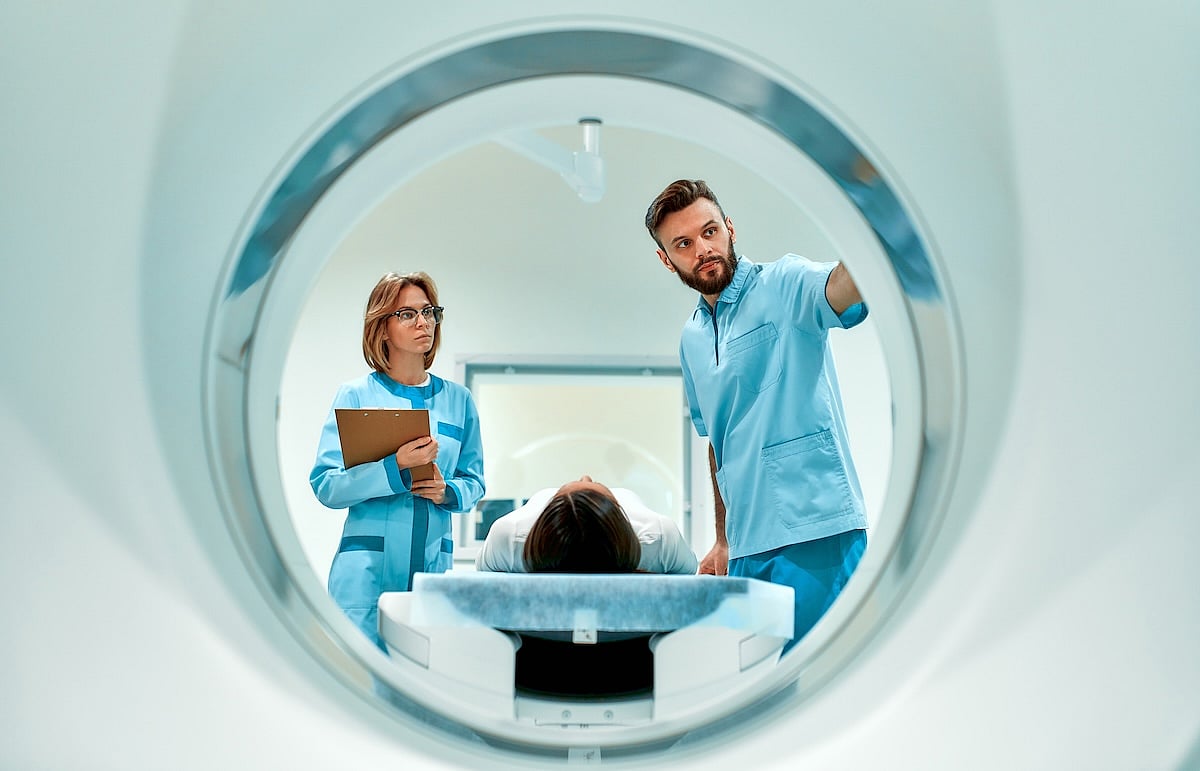Get Healthy!

- Ernie Mundell
- Posted October 23, 2024
MRI Might Spare Rectal Cancer Patients Surgery and Colostomy
Some rectal cancer patients might be spared surgery and the lifelong need for a colostomy bag if they undergo MRI screening, a new study finds.
The scans might accurately predict which patients have a higher odds for cancer recurrence and require surgery plus chemotherapy, and which can forgo surgery and opt for a "watch-and-wait" strategy instead.
“After undergoing chemotherapy and radiation for rectal cancer, patients are understandably concerned whether their cancer is gone or whether there may be some leftover disease," explained study lead author Dr. Arun Krishnaraj.
"Using newer MRI techniques, we are now able to predict much better than in the past whether any cancer remains and, if so, whether it will come back and spread,” said Krishnaraj, who directs the body imaging division at the University of Virginia's UVA Health system.
His team published its findings recently in the journal Radiology.
Rectal cancer is relatively common, with about 46,220 new cases diagnosed in the United States each year (27,330 in men and 18,890 in women), according to the American Cancer Society. Deaths from rectal cancer are included in statistics for colorectal cancers (colon or rectum), which kill more than 54,000 Americans annually.
Seeking to preserve patients' bowel function, doctors ideally want to treat rectal cancers with radiation and chemotherapy alone. However, some patients may require surgery, a procedure called "total mesorectal excision” that involves removal of a section of bowel.
Unfortunately, that can leave survivors with a lifelong need for a colostomy bag, as well as other issues such as sexual dysfunction.
So, knowing which patients might do well without surgery is crucial.
Could MRI scans of the bowel help?
To find out, Krishnaraj and colleagues looked at data from a prior trial of 277 rectal cancer patients who averaged 58 years of age. They had all had their tumors staged using MRI scans as a guide.
Following each patient's outcome over four years, the researchers found that these scans were, in fact, a good indicator of overall survival, cancer recurrence and the odds that the bowel could safely be kept intact.
Adding in the results of endoscopic views of the bowel might raise the accuracy of these MRI-based predictions even higher, the Virginia group said.
“I am optimistic that continued advancement in MRI and other tools like endoscopy will provide better information about future outcomes,” Krishnaraj said in a UVA health news release. “Ultimately, I would love to get close to 99% predictive probability in better informing our patients about their potential risk for recurrence or spread of their cancers following treatment. We may not be there quite yet, but that is our goal.”
“No one wants to get surgery if they can avoid it," he added. "Now we have a powerful tool to help patients and their doctors predict who would benefit from surgery after initial chemotherapy and radiation and who can likely avoid surgery.”
The new study comes on the heels of research published in September in the journal eClinical Medicine. In that study, researchers in Sweden found that giving chemo and radiation therapies before a surgery for rectal cancer can help eliminate the need for removal of the rectum altogether.
More information
Find out more about rectal cancer at MD Anderson Cancer Center.
SOURCE: UVA Health, news release, Oct. 23, 2024







